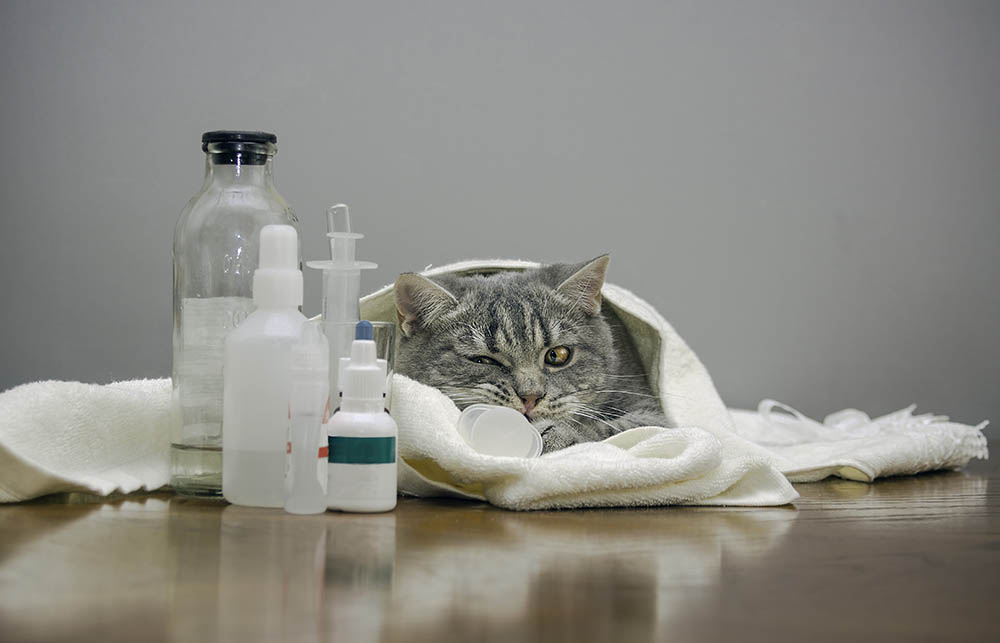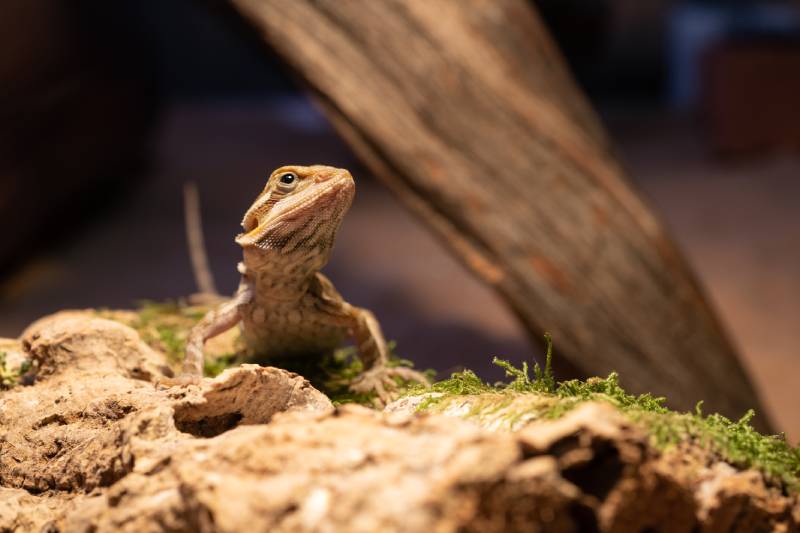Why Does My Cat Yawn So Much? When to Worry (Vet Answer)

Updated on
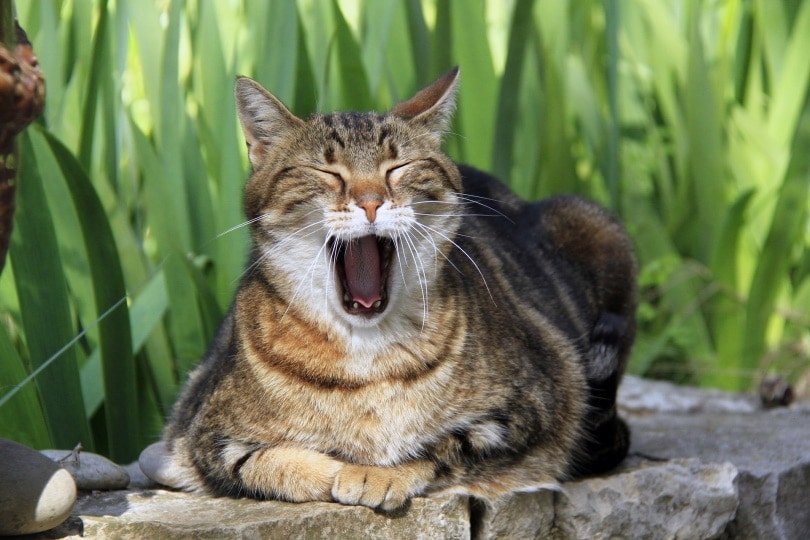
Yawning is an involuntary reflex that consists of an opening of the mouth with the maximal widening of the jaw, with a long and deep inhalation through the mouth and nose, followed by a slow expiration. Yawning is increased before and after sleeping.
Felines spend a large amount of their time sleeping. Cats sleep up to 15 hours a day, so it is common to see them yawning. Yawning is believed to be associated with a feeling of comfort or tiredness, or your cat might just be relaxed or sleepy.
To date, there is not much information on the exact physiological reasons for this reflex. Some of the theories and studies suggest that:
- It may induce brain activation. Alertness is increased after yawning episodes by the mechanical compression of chemoreceptors (the carotid bodies) resulting in the release of hormones, such as adenosine and catecholamines.
- It may help with thermoregulation and cooling of the brain through several mechanisms. One of them is the air exchange and the other is the pushing of blood to peripheral veins on the face to help release excess heat.
- It may help regulate the ear pressure by contraction and release of internal ear structures. In this way, it helps release ear discomfort. However, this can also be achieved in different ways, such as swallowing, so it’s unlikely to be the primary purpose of yawning.
For years, it was believed that yawning helped with oxygenation through the release of carbon dioxide and the inhalation of oxygen; however, recent studies have proved that to be false.
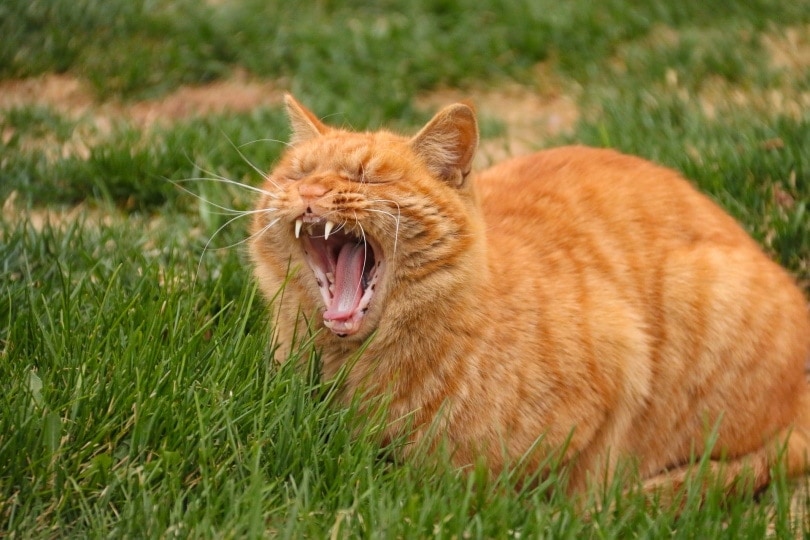
So, Is It Normal That My Cat Yawns So Much?
The answer to this question is that yawning is considered normal and common behavior in cats. However, if you have noticed that the yawning behavior has increased in frequency, this might be indicating something else is going on. If you have noticed lately that your cat yawns more than they used to, or they spend much more time sleeping, it is better to take your cat for a veterinary check and rule out the possibility of a medical issue.
What Medical Problems May Cause a Cat to Yawn More?
Yawning is not commonly associated with many medical conditions, although it can be seen on some occasions. We will discuss several most common health issues in which cats may exhibit yawning, alongside other more noticeable signs.
1. Pain & Discomfort
Cats that are feeling pain in any of the areas of the oral cavity might increase the yawning behavior in an attempt to deal with the discomfort. Cats suffering from periodontitis or feline stomatitis may exhibit painful yawning behavior or wincing as they yawn. More commonly, pain is associated with eating. Take an opportunity to visually inspect the mouth when it’s wide open during a yawn. If you see any obvious signs such as redness, inflammation, discharge, or bad breath, definitively take your cat to the veterinarian as soon as possible. Other signs commonly associated with a medical issue in the oral cavity are:
- Painful vocalization during yawning
- Drooling, sometimes mixed with fresh blood
- Your cat seems to have a difficult time eating, takes longer to swallow, vocalizes, or simply refuses to eat
- Dropping food from the mouth
- Preference for wet food over dry
- Painful vocalization or wincing during yawning
Besides dental disease, there may be other causes for oral pain in cats, such as traumatic injuries, presence of tumors, or even foreign bodies at the back of the throat. All of these will require prompt veterinary attention.
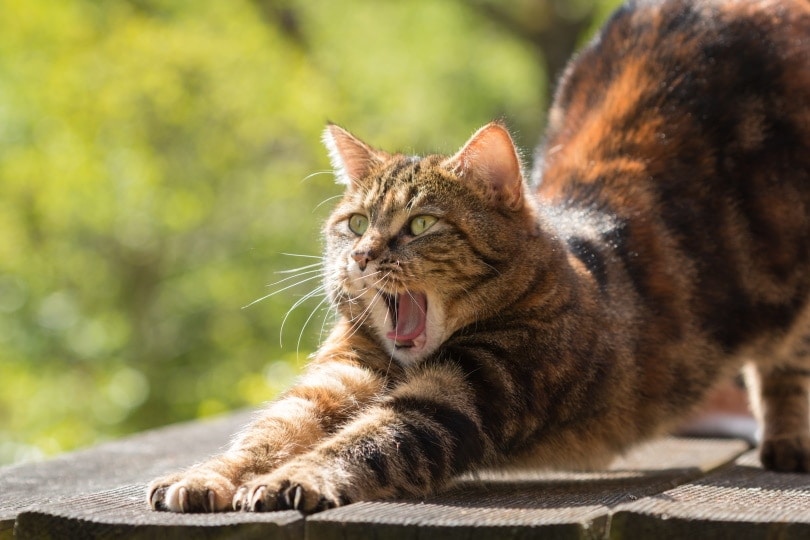
2. Ear Problems
Your cat might be trying to deal with discomfort and pain in the ear canal by yawning. Otitis externa in cats can be caused by fungi, bacteria, and parasitic infestation of mites, ticks, or fleas. It could also be secondary to allergy to food, pollens, flea saliva, or dust mites. Some of the other signs shown by cats with otitis might be:
- Head shaking
- Ear scratching
- Smelly ears
- Signs of ear pain
- Abnormal or excessive waxy discharge
- Head tilting
The veterinarian will examine the ear canal and might also collect samples to reach an accurate diagnosis and prescribe your cat the appropriate treatment. It is very important to follow the veterinarian’s prescriptions precisely and to keep your cat under observation during the treatment. Never stop treatment beforehand, as otitis can become recurrent and more difficult to treat.
Final Thoughts
Yawning is a normal behavior in cats. They might do it when feeling relaxed or sleepy, to gently become more alert, or for some of the reasons still being investigated, such as thermoregulation of the brain. It may be somehow normal to notice slightly increased yawning when the weather is warmer. However, if you have noticed that your cat keeps yawning frequently, it might be an indication of a medical issue.
Several mouth and ear medical conditions can be associated with an increase of the yawning behavior in cats. They are trying to deal with pain and discomfort, and yawning may be a way to do this.
If you notice your cat is yawning more than usual, bring them to the veterinarian as soon as possible to rule out or treat any underlying medical issue.
Featured Image Credit: Jacqueline VERIN, Pixabay




